《改革開放40年中國人權事業的發展進步》白皮書
新華網 2018-12-13 11:20

國務院新聞辦公室12日發表《改革開放40年中國人權事業的發展進步》白皮書,雙語全文如下:
?
改革開放40年中國人權事業的發展進步
Progress in Human Rights over the 40 Years of Reform and Opening Up in China
中華人民共和國國務院新聞辦公室
The State Council Information Office of the People's Republic of China
2018年12月
December 2018
?
目錄
Contents
前言
Foreword
一、牢固樹立尊重和保障人權的治國理政原則
I.Firmly Establishing a Governance Principle of Respecting and Protecting Human Rights
二、大幅提升生存權發展權保障水平
II.Better Protecting the Rights to Subsistence and Development
三、有效實現各項人權全面發展
III.Fully Developing Human Rights in All Respects
四、顯著改善特定群體權利
IV.Ensuring the Rights of Special Groups
五、全面加強人權法治建設
V.Comprehensively Promoting the Rule of Law for Human Rights
六、努力推動各國人權事業共同發展
VI.Facilitating the Development of Human Rights in the World
七、積極參與全球人權治理
VII.Active Participation in Global Governance of Human Rights
八、成功走出符合國情的人權發展道路
VIII.Path of Human Rights Protection Suited to National Conditions
結束語
Conclusion
?
前言
Foreword
?
2018年,是中國改革開放40周年。改革開放是中國共產黨在新的時代條件下帶領全國人民進行的新的偉大革命,是決定當代中國命運的關鍵一招。改革開放極大地解放和發展了社會生產力,成功地開辟了中國特色社會主義道路,也揭開了中國人權事業發展的新篇章。
2018 marks the 40th anniversary of reform and opening up in China. The Communist Party of China (CPC) has led the people in carrying out this great new revolution in the new era-one that holds the key to the destiny of contemporary China. Reform and opening up has helped to liberate and develop social productive forces. It has opened up a path of socialism with Chinese characteristics, and ushered in a new chapter in the development of human rights.
?
40年來,在中國共產黨的堅強正確領導下,中國人民團結一心、勵精圖治、艱苦奮斗、勇往直前,國家面貌發生了翻天覆地的變化,人民生活水平不斷提高。中華民族迎來了從站起來、富起來到強起來的偉大飛躍。
Over the four decades, the Chinese people have worked hard as one under the strong and coherent leadership of the CPC. Huge changes have taken place, and living standards have significantly improved. The Chinese nation has risen and become prosperous and strong.
?
40年來,中國共產黨始終把人民的利益放在首位,做到改革為了人民,改革依靠人民,改革成果由人民共享,切實維護最廣大人民的根本利益,尊重人的價值和尊嚴,促進人的全面發展。
Over the four decades, the CPC has always prioritized the people's interests, ensuring that reform is conducted for the people and by the people, and that its benefits are shared by the people. It has worked to safeguard the fundamental interests of the overwhelming majority of the people, respect human values and dignity, and promote the well-rounded development of the people.
?
40年來,中國在改革開放中尊重人權,在改革開放中保障人權,在改革開放中促進人權,成功走出了一條符合國情的人權發展道路,創造了人類文明發展史上人權保障的新經驗、新奇跡。
Over the four decades, China has showed respect for, protected and promoted human rights in the course of reform and opening up. It has blazed a trail of development in human rights that conforms to the national conditions, and created new experiences and new progress in safeguarding human rights.
?
40年來,中國總結歷史經驗,汲取人類文明發展成果,堅持把人權的普遍性原則與本國實際相結合,不斷創新人權發展理念,形成了以人民為中心、以生存權發展權為首要的基本人權、以全面加強人權法治建設為路徑、以各項人權綜合協調發展為目標的人權發展新理念。
Over the four decades, China has summed up its historical experience, drawn on the achievements of human civilization, combined the universal principles of human rights with the prevailing realities of the country, and generated a series of innovative ideas on human rights. It has brought into being basic rights that center on the people and prioritize their rights to subsistence and development, and proposed that China should follow a path of comprehensive and coordinated human rights development under the rule of law.
?
40年來,中國廣泛開展人權領域交流合作,認真履行國際人權義務,全面參與國際人權事務,積極促進全球人權治理體系變革,致力于構建人類命運共同體,為推動世界人權事業發展不斷作出新貢獻。
Over the four decades, China has carried out extensive exchanges and cooperation in the field of human rights, earnestly fulfilled its international human rights obligations, fully participated in international human rights affairs, actively promoted reform of the global human rights governance system, worked hard for the building of a global community of shared future, and made a consistent contribution to the international cause of human rights.
?
一、牢固樹立尊重和保障人權的治國理政原則
I. Firmly Establishing a Governance Principle of Respecting and Protecting Human Rights
?
尊重和保障人權,是中國共產黨和中國政府的堅定意志和不懈追求。改革開放40年來,“尊重和保障人權”先后載入中國共產黨的全國代表大會報告、國家憲法、中國共產黨黨章以及國家發展戰略規劃,成為中國共產黨和中國政府治國理政的一條重要原則。
It is the determination and ultimate goal of the CPC and the Chinese government to respect and protect human rights. Since the launch of reform and opening up in 1978, "respecting and protecting human rights" has been written into the reports to CPC National Congresses, the Constitution of the People's Republic of China (PRC), the Constitution of the Communist Party of China, and strategies and plans for national development, becoming an important principle of governance for the CPC and the Chinese government.
?
國家尊重和保障人權成為中國憲法的重要原則。憲法是國家的根本大法,是人權保障的宣言書。中國憲法以其最高的法律地位,有力保障了人民當家作主,推動了中國人權事業發展。1954年,新中國制定了第一部憲法。1982年憲法在“總綱”和“公民的基本權利和義務”中全面系統規定了全體人民享有廣泛的人身人格權利,財產權利,政治權利和經濟、社會、文化權利。隨后國家又根據改革開放的形勢和要求對憲法進行了5次修改,人權在憲法中的地位不斷加強。2004年,憲法確立了“國家尊重和保障人權”原則,進一步明確了公民在經濟、政治、文化、社會諸方面全面發展的權利,開創了以憲法原則指引人權事業發展的新格局。2018年通過的憲法修正案堅持人民主體地位,進一步為新時代堅持和發展中國特色社會主義人權事業、實現“兩個一百年”奮斗目標和中華民族偉大復興的中國夢提供了有力保障。
That the state respects and protects human rights has been established as an important principle of the Constitution of the PRC. The Constitution is the fundamental law of a country, making it a declaration of human rights protection. As the supreme law, the Constitution of China effectively ensures that the people are masters of the country, and has promoted the cause of human rights in China. In 1954, the first Constitution of the PRC was created. The Constitution of 1982 stipulated clearly in the "General Principle" and "The Fundamental Rights and Duties of Citizens" that all people enjoy a wide range of rights, including personal rights, right to dignity, property rights, political rights, and economic, social and cultural rights. Since then the state has revised the Constitution five times in accordance with the developments and requirements of reform and opening up, enhancing the status of human rights. In 2004, the Constitution established the principle that "the state respects and protects human rights", and further clarified citizens' rights in the economic, political, cultural and social fields. This launched a new stage where human rights develop under the guidance of constitutional principles. The amendment to the Constitution adopted in 2018 guarantees the principal position of the people, ensuring in the new era the development of socialist human rights with Chinese characteristics, and the realization of the Two Centenary Goals and the Chinese Dream of national rejuvenation.
?
尊重和保障人權成為中國共產黨的執政主張。中國共產黨根據改革開放實際,先后提出一系列人權主張,與時俱進地不斷賦予中國人權發展新的內涵。1997年,中國共產黨第十五次全國代表大會明確提出,“共產黨執政就是領導和支持人民掌握管理國家的權力,實行民主選舉、民主決策、民主管理和民主監督,保證人民依法享有廣泛的權利和自由,尊重和保障人權”。2002年,“尊重和保障人權”作為社會主義政治文明建設的重要目標再次寫入中共十六大報告。2007年,中共十七大報告在總結過去五年“人權事業健康發展”的同時,進一步指出要“尊重和保障人權,依法保證全體社會成員平等參與、平等發展的權利”。同年,“尊重和保障人權”首次寫入《中國共產黨章程》。
Respecting and protecting human rights is a pursuit in CPC governance. Based on the realities of reform and opening up, the CPC has proposed a series of ideas on human rights in China, constantly adding new elements to reflect the changes in our time. In 1997, the 15th CPC National Congress clearly stated: "As a ruling party, the Communist Party leads and supports the people in exercising the power of running the state, holding democratic elections, making policy decisions in a democratic manner, instituting democratic management and supervision, ensuring that the people enjoy extensive rights and freedom endowed by law, and respecting and guaranteeing human rights." In 2002, "human rights are respected and guaranteed" was written into the report to the 16th CPC National Congress as an important goal of socialist political progress. In 2007, when summarizing "sound development of the cause of human rights" over the previous five years, the report to the 17th CPC National Congress further pointed out: "We must respect and safeguard human rights, and ensure the equal right to participation and development for all members of society in accordance with the law. "And in the same year, this principle was written for the first time into the CPC Constitution.
?
2012年,中共十八大將“人權得到切實尊重和保障”作為全面建成小康社會的重要目標,從戰略層面確立了人權事業的重要地位。中共十八大修改通過的《中國共產黨章程》再次重申尊重和保障人權。2014年,中共十八屆四中全會通過《中共中央關于全面推進依法治國若干重大問題的決定》,從推進國家治理體系和治理能力現代化的高度,作出了全面依法治國的重大戰略部署,強調“加強人權司法保障”“增強全社會尊重和保障人權意識”。2017年,中共十九大確立習近平新時代中國特色社會主義思想為黨的指導思想,明確提出“加強人權法治保障,保證人民依法享有廣泛權利和自由”。習近平新時代中國特色社會主義思想蘊含著豐富的人權內涵,對新時代中國人權事業發展提出了新的更高要求,為堅持中國特色人權發展道路、全面推進中國人權事業提供了根本遵循。
In 2012, the principle that "human rights should be fully respected and protected" was defined by the 18th CPC National Congress as an important goal in building a moderately prosperous society in all respects, establishing the importance of human rights from a strategic perspective. The CPC Constitution amended and adopted at this congress reaffirms the principle of respecting and protecting human rights. In 2014, the Fourth Plenary Session of the 18th CPC Central Committee adopted the "Resolution of the Central Committee of the Communist Party of China on Major Issues Concerning Comprehensively Advancing the Rule of Law", making a major strategic plan to comprehensively advance the rule of law as part of its effort to modernize the state governance system and enhance its administrative capacity. The resolution emphasizes the need to "provide stronger judicial protection of human rights" and to "strengthen awareness throughout the whole of society about the need to respect and safeguard human rights". In 2017, the CPC 19th National Congress established Xi Jinping Thought on Socialism with Chinese Characteristics for a New Era as the guiding ideology of the CPC, and clearly stated that we should "strengthen legal protection for human rights to ensure that the people enjoy extensive rights and freedoms as prescribed by law". Xi Jinping Thought raises new and higher development requirements for China's human rights in the new era, and provides fundamental principles for us to follow the path and advance the cause of human rights with Chinese characteristics.
?
尊重和保障人權成為國家發展的核心目標。中國的國家發展戰略堅持以尊重和保障人權為價值取向,以增進人民福祉、保障人民權利、促進人的全面發展為出發點和落腳點。按照建設中國特色社會主義的要求,自改革開放初期提出現代化建設“三步走”發展戰略以來,中國共產黨和中國政府始終把提高人民生活水平、保障人民各項基本權利的實現作為執政目標。中共十八大以來,以習近平同志為核心的黨中央,明確將“人民對美好生活的向往”作為執政目標,進一步提出了實現“兩個一百年”的奮斗目標。2017年,中共十九大提出到2020年全面建成小康社會,并在此基礎上確定分兩步走在本世紀中葉建成社會主義現代化強國的戰略安排。
It has become a core goal of national development to respect and protect human rights. In its national development strategies, the Chinese government upholds the values of respecting and safeguarding human rights, and is committed to improving the people's wellbeing, safeguarding their rights, and promoting their well-rounded development. To meet the requirements of building socialism with Chinese characteristics since the three-step development strategy for achieving modernization was laid out in the early days of reform and opening up, the CPC and the Chinese government have always pursued the goals of improving people's living standards and ensuring that they enjoy various basic rights. Since the 18th CPC National Congress, the Central Committee led by General Secretary Xi Jinping has made it clear that, in governing the country, it will follow the goal of meeting the people's aspiration to live a better life and subsequently set the Two Centenary Goals. In 2017, the 19th CPC National Congress proposed that on the basis of completing the building of a moderately prosperous society in all respects by 2020, a two-step approach should be taken to build China into a strong and modern socialist country by the middle of the century.
?
按照建設社會主義現代化國家的要求和發展戰略,中國政府制定國家發展規劃,保障人民各項權利的實現。從1953年到2001年,每5年制定一個國家發展計劃,對國家經濟、文化、社會等各方面發展作出安排。自2006年起,改計劃為規劃,實現了從具體、微觀、指標性的發展計劃向宏觀的國民經濟和社會發展規劃的轉變。目前,中國已經連續制定了十三個國民經濟和社會發展計劃或規劃,涵蓋脫貧攻堅、教育、健康、就業、社會保障、民主法治建設、反腐敗斗爭等,涉及經濟、社會、文化權利和公民及政治權利的諸多內容,為推動人權發展確定了指導思想、目標方向、基本要求和實施舉措。
In accordance with the requirements and strategies for building a modern socialist country, the Chinese government has made a national plan every five years from 1953 to 2001 for the development of the economy, culture, society, and other sectors. In 2006, the detailed, micro plan with growth targets was transformed into a macro program for national economic and social development. China has formulated 13 such programs for national economic and social development, covering poverty elimination, education, healthcare, employment, social security, democracy and the rule of law, and the anti-corruption campaign and involving economic, social, cultural, civil and political rights. These plans set out the guiding principles, goals, basic requirements and implementation measures for the development of human rights.
?
中國積極響應聯合國《維也納宣言和行動綱領》,先后制定并實施《國家人權行動計劃(2009-2010年)》《國家人權行動計劃(2012-2015年)》《國家人權行動計劃(2016-2020年)》,確定尊重和保障人權的階段性目標和任務。目前已圓滿完成第一、二期國家人權行動計劃預定的各項指標,正在扎實推進第三期國家人權行動計劃的落實。國家還制定了經濟、文化、社會和環境等方面的專項行動計劃,以及保障少數民族、婦女、兒童、老年人、殘疾人等特定群體權利的專項規劃,努力促進全體人民共同享有人生出彩的機會,共同享有夢想成真的機會,共同享有充分人權。
In response to the UN Vienna Declaration and Programme of Action, the Chinese government has made and carried out the National Human Rights Action Plan (2009-2010), National Human Rights Action Plan (2012-2015), and National Human Rights Action Plan (2016-2020), setting phased goals and tasks for respecting and safeguarding human rights. It has fulfilled the targets set in the first two action plans, and is working on the third. The Chinese government has also formulated special action plans relating to the economy, culture, society, the environment and other fields, as well as special plans to protect the rights of specific groups such as ethnic minorities, women, children, the elderly, and people with disabilities. In so doing, the government is determined to ensure equal opportunities for all people to live a rewarding life, realize their dreams, and enjoy full access to human rights.









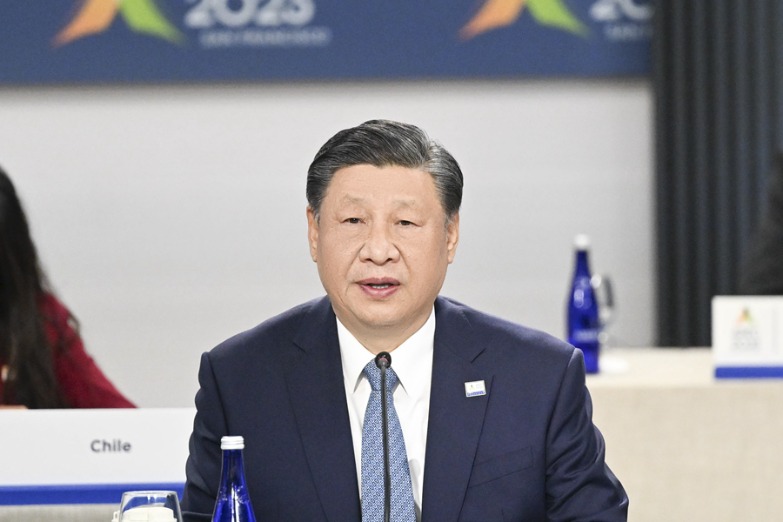
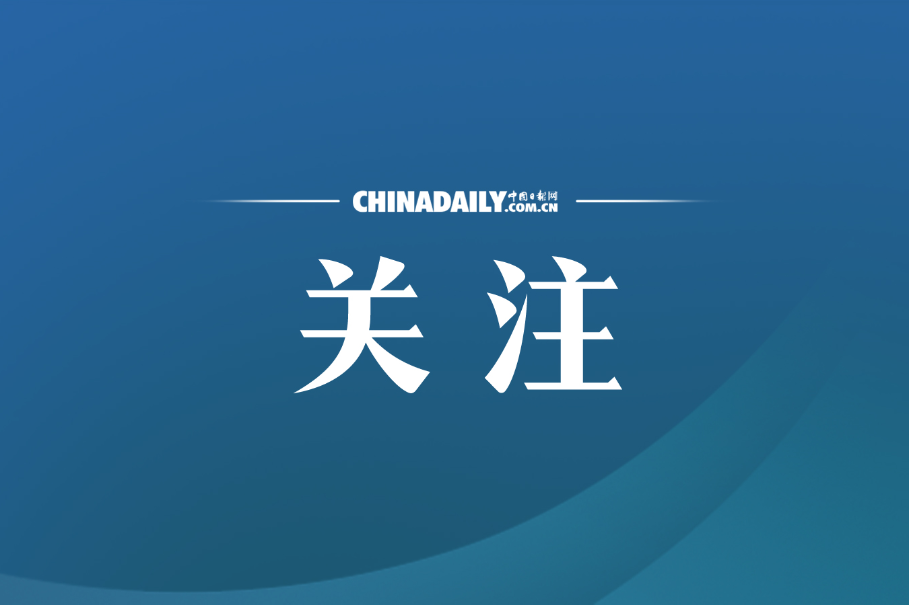
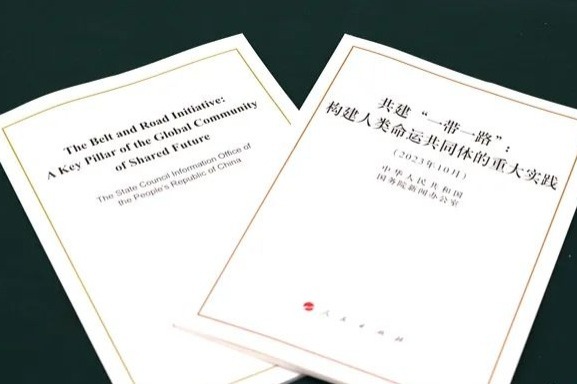
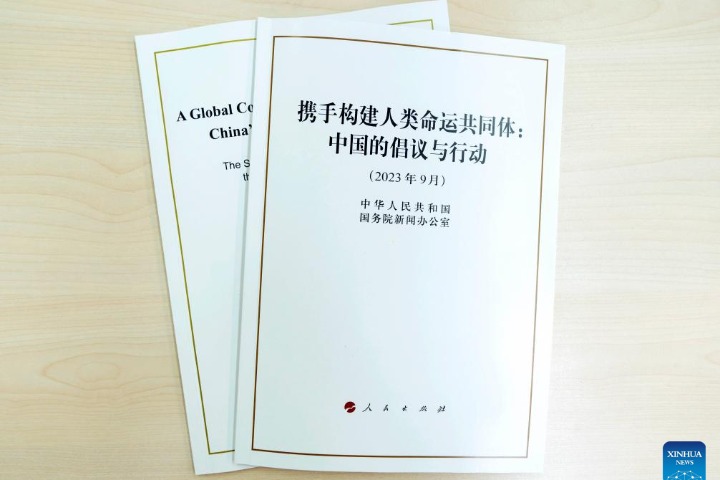
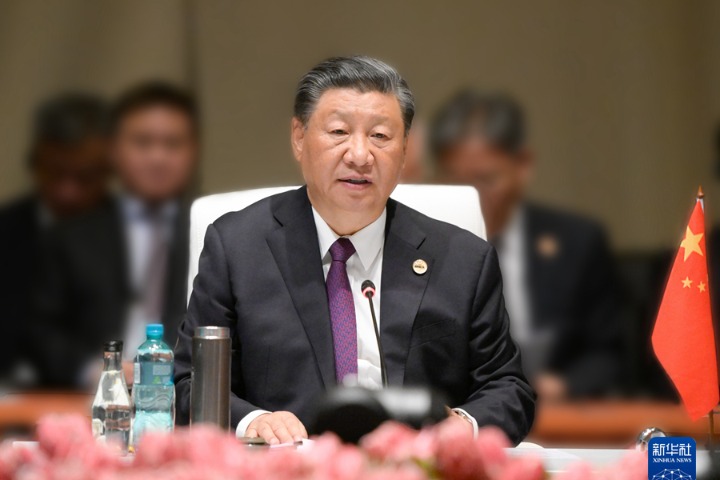



 英語點津微信
英語點津微信 雙語小程序
雙語小程序